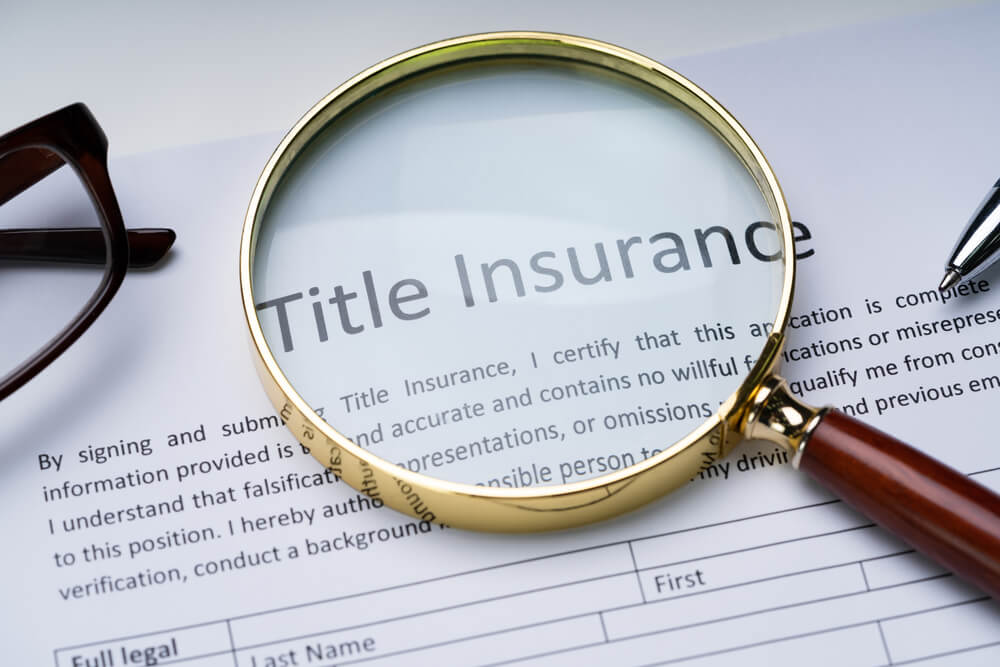Homeowners title insurance protects homeowners from potential financial loss due to defects in a property's title. It's an essential protection that should not be overlooked when purchasing a home.
Yet, in Virginia, even though there are two types of title insurance, only homeowners title insurance is optional. However, your lender makes it mandatory for you to buy lenders title insurance to protect them! Why? A lender's title insurance protects their interests, not yours as a homeowner. If there's a claim against the title, they are covered but not you!
If it's that important to the mortgage lender, then shouldn't it be important to you? Let's look at four ways your homeowner's title insurance protects you.
Homeowners Title Insurance: Protects Against Title Defects
These defects can lead to ownership disputes, costly legal battles, and even loss of the property. That's where owner's title insurance comes in. It provides coverage and financial protection against these risks. More about these below.
Homeowners Title Insurance: Safeguards Your Investment
Homeowner's title insurance ensures that you have a clear and marketable title to your property, giving you peace of mind and security.
You may think that since a title company performs a title search, you should be in the clear. You would be right up to a point. What a title company can't uncover are defects with the title that aren't known.
To be clear, lenders typically require that all liens against the title of the property must be resolved and removed before they will fund the purchase. And usually, liens are discovered and resolved before purchase.
However, it is possible for the property to have an unknown lien and for it to be discovered after you've purchased the home.
With a title insurance policy to protect you, a title claim by another party or a lien you never caused would not cause you to be at risk of losing your home.
Some examples of typical scenarios are:
(While coverage depends on the policy you purchase, most title companies cover the 10 possibilities below.)
- Fraud, including forgery
- Failure to properly convey title by previous sellers
- Clerical errors, which includes electronic filing errors
- Claims against the property resulting from defective judicial or administrative proceedings
- Tax liens that were not disclosed and were due and payable at the time of the sale
- Physical encroachments not disclosed by an accurate land survey
- A defective title that cannot be transferred
- Unable to access the property
- Probate issues. This could include undiscovered heirs or conflicting wills
- Erroneous or fraudulent money transfers in bankruptcy proceedings
Missing heirs are another possibility. Most property is handed down through successive generations. However, there could be heirs that no one knows about or have been missing for years.
They could contest the will and their rights to your property. If that happens, your homeowner title insurance can protect you from this kind of risk.
Then there are those criminals that buy or sell a house using a fake identity. Yes, it sounds crazy because it is. But criminals do take advantage of similar or common names to impersonate a property owner.
If you are a victim of such a scam, you could risk losing your claim to a property you purchased legal. Your title insurance coverage will come to your aid.
These are just a few additional examples of claims as well as defects in the title that insurance policies cover.
Avoiding Potential Legal and Financial Pitfalls: The Role of Homeowner's Title Insurance
Homeowner's title insurance covers the legal expenses incurred in defending your title, saving you from significant financial burden.
How Homeowner's Title Insurance Provides Protection and Peace of Mind
It allows you to enjoy your home without constantly worrying about the possibility of legal disputes or financial loss. It is an added layer of security for your peace of mind.
Tips for Selecting the Right Homeowners Title Insurance Policy
Always insure your property for the full purchase price of the property. Only the lender needs a policy for the loan amount. In Virginia, the practice is that the buyer pays the title insurance premium. However, this can also be a negotiating factor between the buyer and the seller. Let your real estate agent or settlement agent advise you.
Be sure to ask about all premium or rate discounts that could be available. While shopping around to get the best rate is important, make sure you read the policy! Just because you're getting a cheaper rate somewhere else doesn't mean you're getting excellent coverage. Know what the policy will and won't cover.
Always work with a licensed title insurance company.
If you are unsure about what company to hire, go to scc.virginia.gov/page/insurance. Or call the Bureau of Insurance's Consumer Services Section at 877-310-6560. Email them at [email protected].
Check reviews and talk to your others who have used the title company you're considering. Find out what the company was like to work with.
What Doesn't Homeowners title Insurance Cover?
Nor would it cover mold or mildew, fire or weather damage, or repairs not caused by previous owners. Nor will it cover damage to underground fuel tanks. And that makes sense, if you think about it. That's not its job. That's the job of a homeowner's insurance policy.
A title insurance policy protects your legal interests in the property. As we've discussed, legal issues that could not have been known prior to your new home ownership.
The Consequences of Skipping Homeowner's Title Insurance
Without it, you're at risk of many financial repercussions, including the possibility of losing your home.
Conclusion
When you're ready to settle on your new home, turn to Lilly Title & Settlement. We're a woman-owned company who's obsessed with legal details and customer satisfaction.

 RSS Feed
RSS Feed